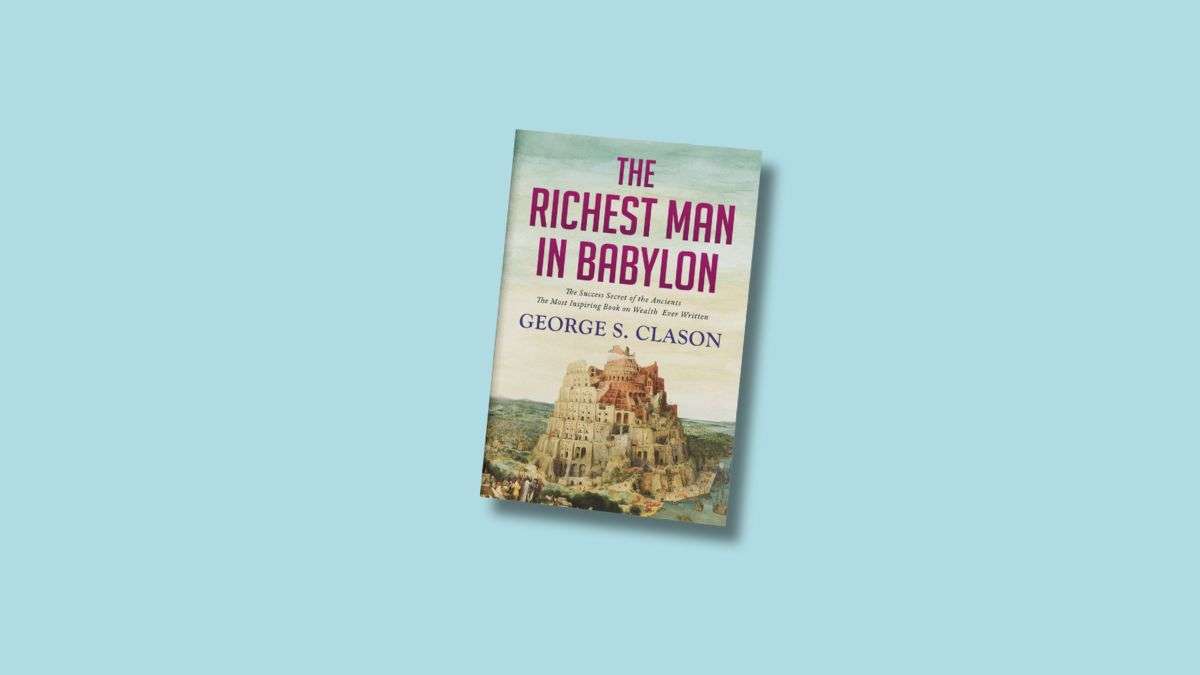Table of Contents
- Introduction
- Principles of Wealth Building in The Richest Man in Babylon
- 1. Understanding the Value of Financial Discipline
- 2. Leveraging Opportunities for Wealth Growth
- Conclusion
Introduction
The Richest Man in Babylon is a timeless classic that has captivated readers for generations with its invaluable financial wisdom. This book, written by George S. Clason in 1926, is a collection of parables set in ancient Babylon, offering profound insights into wealth-building and personal finance management principles.
Despite being nearly a century old, the lessons taught in The Richest Man in Babylon remain as relevant today as when the book was first published. In an era where financial literacy is more crucial than ever, this book is a beacon of knowledge, guiding readers toward financial stability and prosperity.
The enduring appeal of The Richest Man in Babylon lies in its ability to convey complex financial concepts through simple, relatable stories. Clason masterfully weaves together tales of merchants, tradesmen, and chariot builders, each imparting valuable lessons on acquiring, maintaining, and growing wealth.
Readers encounter memorable characters throughout the book, such as Arkad, the titular richest man in Babylon, who shares his seven cures for a lean purse. These cures, which include saving a portion of one’s earnings, making one’s money work for them, and seeking wisdom from successful people, form the foundation of sound financial planning.
As we delve into the pages of this remarkable book, we embark on a journey of discovery, unearthing the essential wealth-building insights that have stood the test of time. From the importance of living below one’s means to the power of compound interest, The Richest Man in Babylon offers a wealth of knowledge that can transform how we think about and manage our finances.
In the following sections, we will explore the key principles of wealth-building outlined in the book, examine the value of financial discipline, and discuss how to leverage opportunities for financial growth. By the end of this blog post, you will be equipped with the tools and mindset necessary to apply this ancient Babylonian wisdom to your financial journey.
So, let us embark on this enlightening adventure together, extracting the wealth of wisdom from The Richest Man in Babylon and discovering how these timeless lessons can guide us toward a brighter, more prosperous future.
Principles of Wealth Building in The Richest Man in Babylon
The Richest Man in Babylon is a treasure trove of financial wisdom, offering timeless principles to guide readers toward building and sustaining wealth. At the heart of the book’s teachings lie several key concepts that form the foundation of a solid financial strategy.
The Power of Saving
One of the most fundamental principles emphasized in the book is the importance of saving a portion of one’s earnings. Clason stresses that setting aside at least 10% of your income is crucial for laying the groundwork for financial stability. By consistently saving a portion of your earnings, you create a safety net that can cushion one against unexpected expenses and provide a starting point for future investments.
Investing Wisely
While saving is essential, the book highlights the significance of investing wisely to grow wealth over time. Clason encourages readers to seek sound investment opportunities to multiply their savings and generate passive income. However, he cautions against investing without proper knowledge and due diligence. The key is to educate yourself, seek advice from experienced investors, and make informed decisions based on a thorough understanding of the risks and potential rewards.
The Pursuit of Knowledge
Another vital principle in The Richest Man in Babylon is seeking knowledge and continuously learning about financial matters. Clason emphasizes that ignorance is the enemy of wealth and that those who actively pursue knowledge and understanding of money management are likelier to succeed in their financial endeavors. By staying informed about economic trends, investment strategies, and personal finance best practices, you equip yourself with the tools necessary to make sound financial decisions and adapt to changing circumstances.
Throughout the book, Clason illustrates these principles through engaging parables and stories set in ancient Babylon. The characters in these tales, such as the wise Arkad and the ambitious Bansir, are relatable examples of individuals who apply these wealth-building concepts to their lives and reap the rewards of financial stability and prosperity.
By embracing saving diligently, investing wisely, and continually seeking knowledge, readers can lay the foundation for a solid financial future. The Richest Man in Babylon is a powerful reminder that these timeless lessons are just as relevant today as they were in ancient times and that anyone can apply them to their lives to build and preserve wealth for generations to come.
1. Understanding the Value of Financial Discipline
One prominent theme in The Richest Man in Babylon is the importance of financial discipline. This timeless work emphasizes that true wealth is about earning money and managing it wisely. By delving into the significance of discipline in handling finances effectively, we can unlock the secrets to long-term prosperity and financial success.
Financial discipline is the foundation upon which wealth is built. It involves practicing self-control, setting clear financial goals, developing good habits, and adhering to a well-structured budget.
In the book, the character Arkad, known as the richest man in the city, attributes his success to the discipline he developed early on in his life. He learned to consistently save a portion of his earnings, no matter how small, and to invest his money wisely. This habit of saving and investing, combined with living below his means, allowed him to accumulate significant wealth over time.
One of the key lessons from The Richest Man in Babylon is that financial discipline is not about deprivation but about making conscious choices. It involves prioritizing long-term financial goals over short-term gratification. By practicing self-control and avoiding unnecessary expenses, individuals can redirect their money towards savings and investments to grow their wealth.
The book illustrates this concept through the story of a chariot builder who, despite earning a good income, found himself in debt due to his lack of discipline. Only by adopting a disciplined approach to his finances was he able to turn his situation around and achieve financial stability.
Throughout the book, numerous examples demonstrate the rewards of financial discipline. A young man named Nomasir sought advice from Arkad on becoming wealthy. Arkad shared with him the principle of saving one-tenth of his earnings and investing the rest wisely. By following this advice and maintaining discipline in his financial habits, Nomasir could transform his life and secure a prosperous future for himself and his family. This story serves as a powerful reminder that financial discipline is not only about personal gain but also about its impact on future generations.
The Richest Man in Babylon teaches us that financial discipline is a crucial ingredient in the recipe for wealth accumulation. Individuals can achieve long-term financial success by practicing self-control, setting clear financial goals, and adhering to a well-structured budget. The book’s timeless lessons remind us that true wealth is not just about earning money but also about managing it wisely through discipline and smart decision-making.
2. Leveraging Opportunities for Wealth Growth
The narrative in The Richest Man in Babylon emphasizes the importance of seizing opportunities for financial advancement. The book teaches us that wealth is not merely a matter of luck or circumstance but rather the result of actively seeking and capitalizing on growth opportunities.
One of the key lessons from the book is the role of risk-taking in wealth-building endeavors. However, it’s important to note that the text does not advocate for reckless or impulsive decision-making. Instead, it encourages a balanced approach that combines calculated risks with prudence and wisdom. The characters in the book who achieve financial success are those who carefully assess potential investments, seek guidance from experienced mentors, and make informed decisions based on their knowledge and understanding of the market.
Another crucial aspect of leveraging opportunities for wealth growth is the value of strategic planning and goal setting. The Richest Man in Babylon emphasizes the importance of having a clear vision for one’s financial future and taking deliberate steps to achieve those goals. This involves creating a budget, setting aside a portion of one’s earnings for savings and investment, and consistently working towards long-term objectives.

The book also highlights the significance of perseverance and patience in pursuing wealth. Building substantial wealth rarely happens overnight; it requires a sustained effort over time. The characters in the book who ultimately achieve financial success remain committed to their goals, even in the face of challenges or setbacks. They understand that wealth accumulation is a journey, not a destination, and maintain a long-term perspective throughout the process.
Ultimately, the book teaches us that leveraging opportunities for wealth growth is a multifaceted endeavor that requires strategic thinking, calculated risk-taking, and unwavering dedication. By embracing these principles and consistently applying them to our financial lives, we can position ourselves for long-term prosperity and success.
Conclusion
As we come to the end of our exploration of the timeless lessons from The Richest Man in Babylon, it’s clear that this classic book holds a wealth of wisdom that remains highly relevant today. Throughout its pages, we’ve discovered the key principles that can guide us on our financial journeys, from the importance of saving a portion of our earnings to the power of investing wisely and seeking knowledge to make informed decisions.
One of the book’s most significant takeaways is the value of financial discipline. By practicing self-control, creating and sticking to a budget, and consistently working towards our financial goals, we can lay the foundation for long-term wealth accumulation. The stories in The Richest Man in Babylon are powerful reminders that financial discipline’s rewards are well worth the effort. Another crucial lesson is the importance of seizing opportunities for wealth growth.
While prudence and careful planning are essential, the book also encourages us to take calculated risks when the potential for financial advancement arises. Setting and strategically pursuing clear goals can create a roadmap for long-term prosperity. So, what can you do to apply these principles to your financial journey? Here are a few actionable steps to consider:
- Start by setting aside a portion of your monthly income, no matter how small. Make saving a habit and watch your wealth grow over time.
- Educate yourself on personal finance and investing. Seek out reliable sources of information and advice to make informed decisions with your money.
- Create a budget that aligns with your financial goals and stick to it. Practice self-discipline and avoid unnecessary spending.
- Look for opportunities to grow wealth through investing, starting a side hustle, or advancing your career. Be open to possibilities while maintaining a balanced approach to risk.
Remember, building wealth is a journey, not a destination. By incorporating the lessons from The Richest Man in Babylon into your daily practices and staying committed to your financial goals, you can create a brighter, more prosperous life and life-changing financial security.

